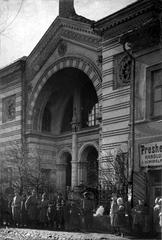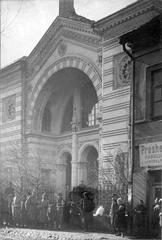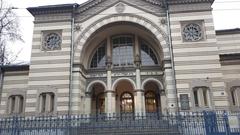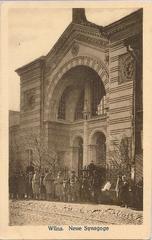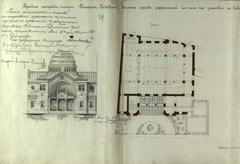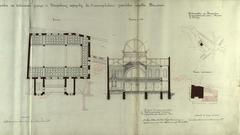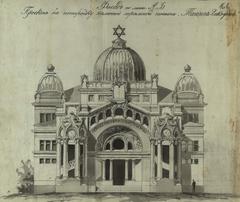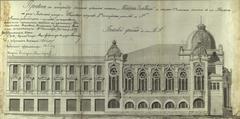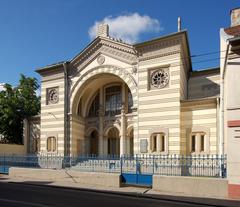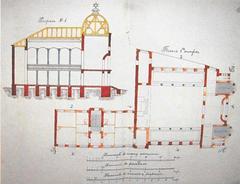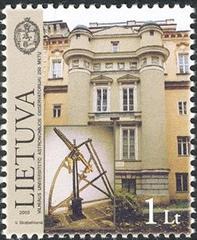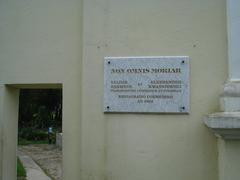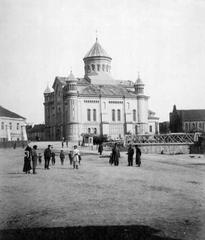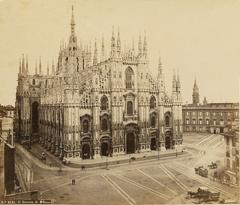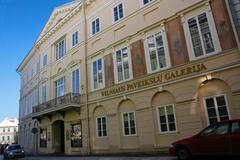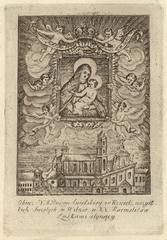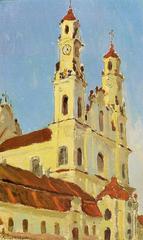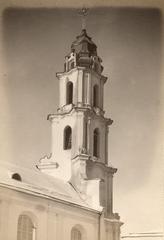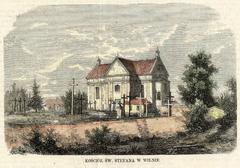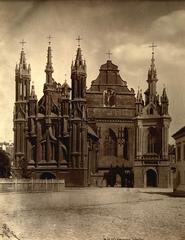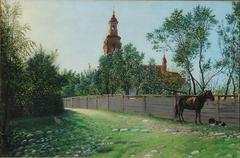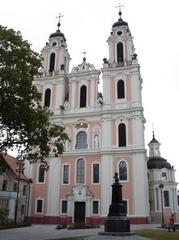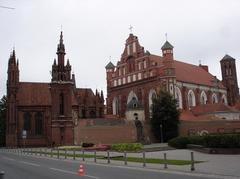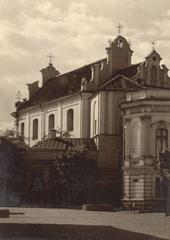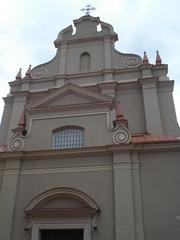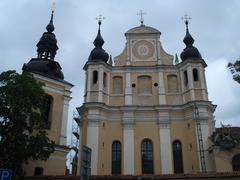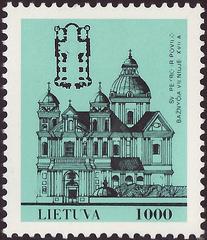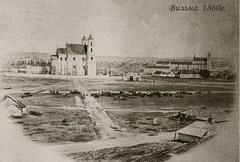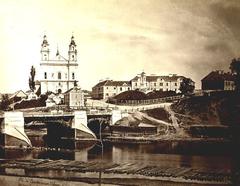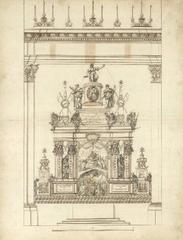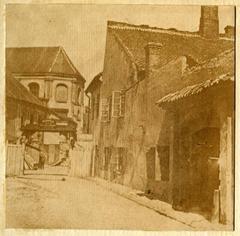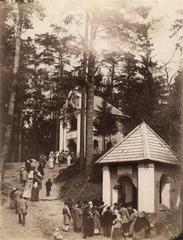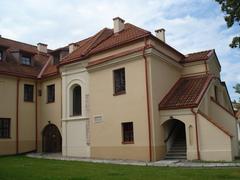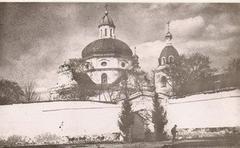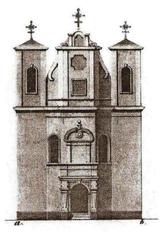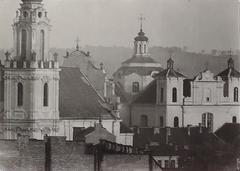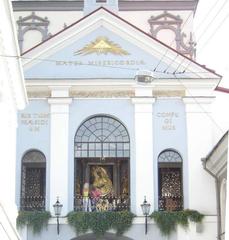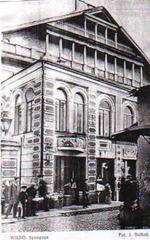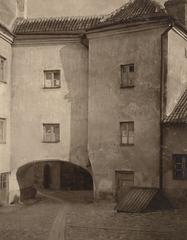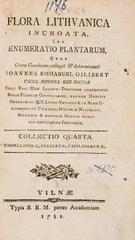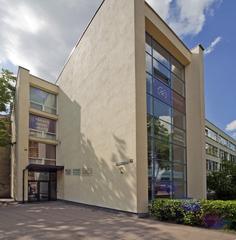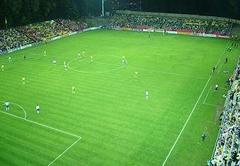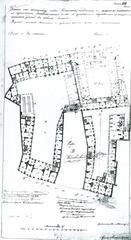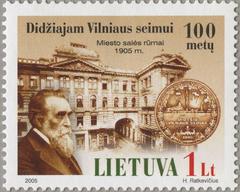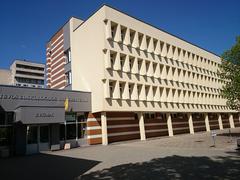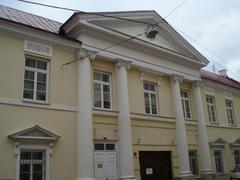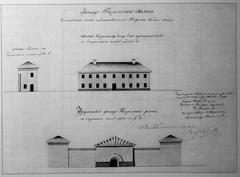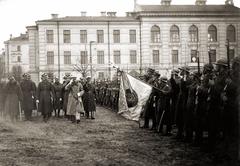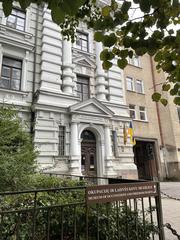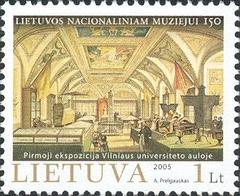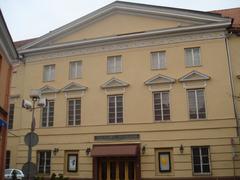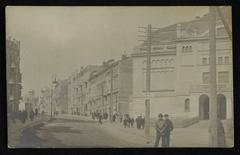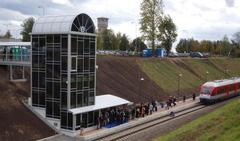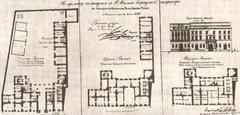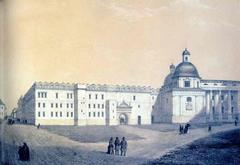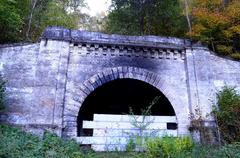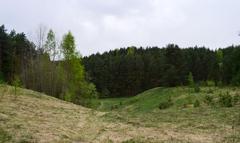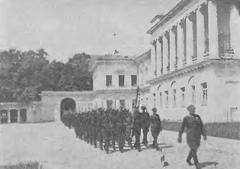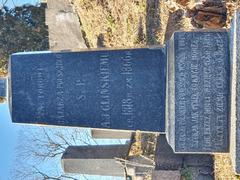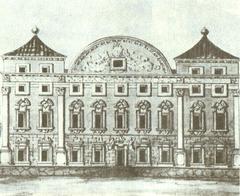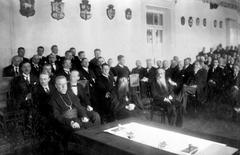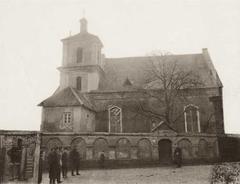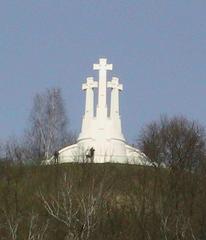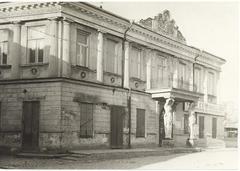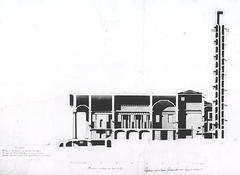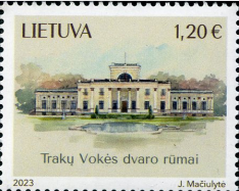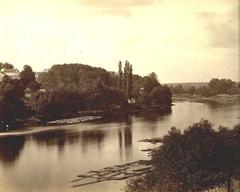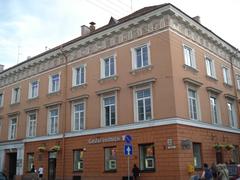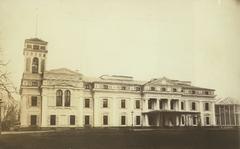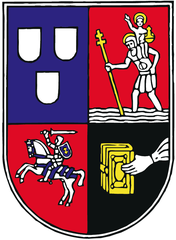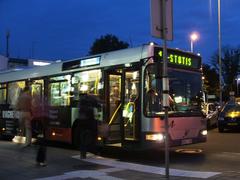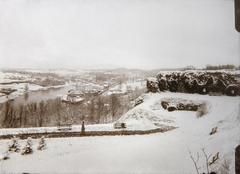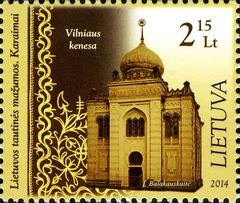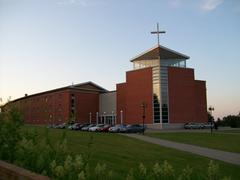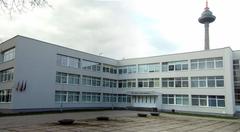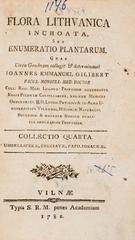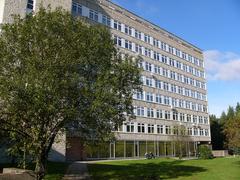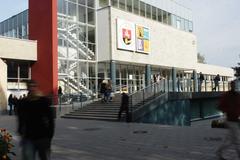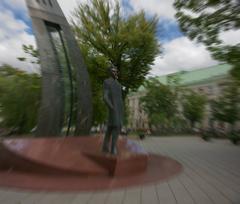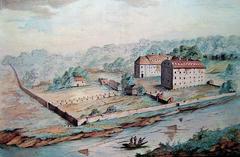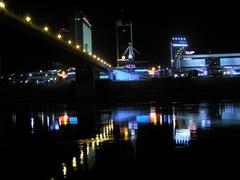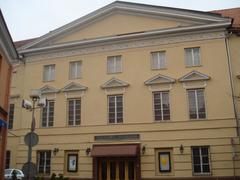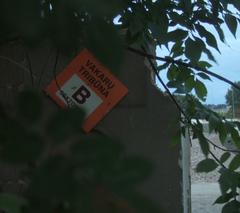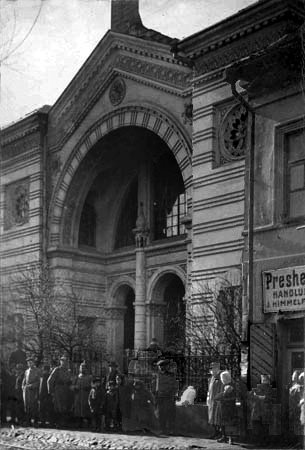
Choral Synagogue of Vilnius: Visiting Hours, Tickets, and Historical Significance
Date: 14/06/2025
Introduction
Nestled in the heart of Vilnius, Lithuania, the Choral Synagogue—known locally as Vilniaus choralinė sinagoga—stands as a vibrant testament to the city’s Jewish heritage and resilience. Built in 1903, this singularly preserved synagogue is the only active Jewish house of worship remaining in Vilnius, once celebrated as the “Jerusalem of the North.” Designed by architect Dovydas Rozenhauzas, its striking blend of Moorish Revival and Romanesque architectural styles reflects a period of cultural flourishing and progressive Jewish thought in early 20th-century Vilnius. Surviving the devastations of World War II and the Soviet era, the Choral Synagogue has been meticulously restored and now serves as a hub for religious life, community events, and cultural preservation.
This comprehensive guide provides all the essential information for visiting the Choral Synagogue, including up-to-date details on visiting hours, ticketing, accessibility, etiquette, and travel tips. Whether you are a history enthusiast, architecture aficionado, or cultural traveler, this article will help you plan a respectful and enriching visit to one of Vilnius’s most significant historical sites. For the latest updates on hours and events, always refer to official sources such as the Lithuanian Jewish Community and Go Vilnius (Vilna Association, WeloveLithuania).
History and Cultural Importance
Origins and Early Years
Commissioned by the progressive Jewish community and completed in 1903, the Choral Synagogue replaced an earlier wave of smaller prayer houses. At the time, Vilnius was home to over 100 synagogues and prayer rooms, serving a large and diverse Jewish population (Vilna Association). The synagogue’s name reflects its renowned choral tradition, a hallmark of the Haskalah (Jewish Enlightenment) movement, which sought to modernize Jewish religious practice and incorporate secular elements like music (Mike’s Travel Guide).
From its inception, the synagogue was a center for religious, educational, and cultural life, hosting services, lectures, and community gatherings. Its choir and musical liturgy set it apart from other local synagogues.
Survival and Restoration
The Holocaust decimated Vilnius’s Jewish population, and the city’s synagogues were largely destroyed or repurposed during World War II and the subsequent Soviet period. The Choral Synagogue was nationalized and used as a metal factory, suffering significant damage. Following Lithuanian independence, the building was returned to the Jewish community, and a major restoration project—completed in 2010—revived both its structural integrity and its role as a vibrant center for worship and culture (Synagogues360, WeloveLithuania).
Architectural Features
Exterior
The building is a distinctive example of Moorish Revival and Romanesque Revival architecture. Its symmetrical façade features horseshoe arches, decorative brickwork, and a prominent onion-shaped dome. Twin columns, intricate stucco, and geometric patterns evoke both Jewish artistic traditions and European orientalism. The use of light brick and blue-gold accents gives the synagogue a striking presence within the Vilnius Old Town (Lithuanian Jewish Community).
Interior
Inside, the spacious prayer hall can accommodate up to 400 worshippers. The central bimah (platform for Torah reading) is surrounded by ornate wrought-iron railings, while the Ark (Aron Kodesh) on the eastern wall is richly gilded and inscribed in Hebrew. Stained-glass windows and elaborately plastered ceilings create a serene, light-filled atmosphere. The women’s gallery, located on the upper level, is enclosed by decorative latticework and accessible via a separate staircase (Lithuanian Jewish Community). Acoustics were specially designed to enhance choral singing, reflecting the synagogue’s unique musical focus.
Visiting the Choral Synagogue of Vilnius
Location
The synagogue is centrally located at 39 Pylimo Street, on the edge of Vilnius’s Old Town. It is within walking distance of major landmarks like Gedimino Boulevard and the Presidential Palace and easily accessible by public transport (Go Vilnius).
Visiting Hours (as of June 2025)
- Monday to Friday: 10:00 a.m. – 3:00 p.m.
- Saturday & Sunday: Closed to visitors (reserved for religious services)
Holiday schedules and closures may apply—check the Lithuanian Jewish Community website or Go Vilnius for the latest updates.
Tickets and Admission
- Individual visitors: Entry is typically free, but a donation of 2 EUR is encouraged to support preservation.
- Groups/guided tours: Advance booking recommended; a small fee may apply.
- How to enter: Ring the bell at the blue gate for admission (Vilnius with Locals).
Guided Tours
Guided tours are available by appointment in several languages and are highly recommended for those interested in the synagogue’s history and architecture. Educational materials and brochures are available at the entrance (Go Vilnius).
Accessibility
The main prayer hall is accessible via a ramp (upon request), but the women’s gallery is only reachable by stairs. Restroom facilities are available but limited. For specific accessibility needs, contact the synagogue in advance (TripHobo).
Visitor Etiquette and Security
- Dress code: Modest dress is required. Men must cover their heads (kippot provided); women should cover shoulders and knees.
- Behavior: Maintain quiet respect during services; mobile phones must be silenced; no food or drink inside.
- Photography: Permitted in most areas except during services and with worshippers present; always ask permission.
- Security: Bag checks and ID may be required.
Nearby Attractions
Enhance your visit by exploring these nearby sites:
- Vilna Gaon Jewish State Museum: Extensive exhibits on Lithuanian Jewish history.
- Ruins of the Great Synagogue: Once the largest synagogue in Lithuania.
- Geliu Synagogue: Recently restored and used for exhibitions.
- Jewish Quarter and Vilnius Old Town: UNESCO-listed historic center.
Community Life, Memorials, and Events
The Choral Synagogue is a center for religious, cultural, and educational life. The Lithuanian Jewish Community organizes concerts, lectures, exhibitions, and youth programs promoting Jewish heritage and intercultural dialogue (Lithuanian Jewish Community). Inside, memorial plaques honor Holocaust victims from across Lithuania, and a monument to Chiune Sugihara, the Japanese consul who saved thousands of Jews, stands nearby (Synagogues360).
Frequently Asked Questions (FAQ)
Q: What are the Choral Synagogue visiting hours?
A: Monday to Friday, 10:00 a.m. – 3:00 p.m.; closed on weekends for religious services.
Q: How much is admission?
A: Entry is generally free; a 2 EUR donation is encouraged. Group tours may have a small fee.
Q: Are guided tours available?
A: Yes, guided tours can be arranged in advance.
Q: Is the synagogue wheelchair accessible?
A: The main prayer hall is accessible with a ramp; the women’s gallery is not.
Q: Can I take photos?
A: Photography is permitted in most areas, except during services and with worshippers present.
Q: What should I wear?
A: Modest attire is required; kippot are provided for men.
Essential Travel Tips
- Check official sources for the latest hours and ticket info.
- Respect religious customs and site etiquette.
- Book guided tours in advance for an in-depth experience.
- Combine your visit with other Jewish heritage sites in Vilnius.
- Consider using public transport or walking—parking is limited.
- For virtual tours and downloadable maps, visit Go Vilnius.
Conclusion
The Choral Synagogue of Vilnius is a living monument to the city’s Jewish legacy, architectural splendor, and enduring community spirit. By planning your visit with up-to-date information and respectful awareness, you honor the memory of Vilnius’s Jewish community and contribute to the preservation of a vital cultural heritage. For further resources, guided tours, and updates on events, consult the Lithuanian Jewish Community website or Go Vilnius, and consider downloading the Audiala app for an enhanced audio experience.
References and Further Reading
- Vilna Association
- Lithuanian Jewish Community
- Mike’s Travel Guide
- Go Vilnius
- WeloveLithuania
- Synagogues360
- Jewish Heritage Lithuania
- TripHobo
- Vilnius with Locals
- GVF
- Wikipedia
